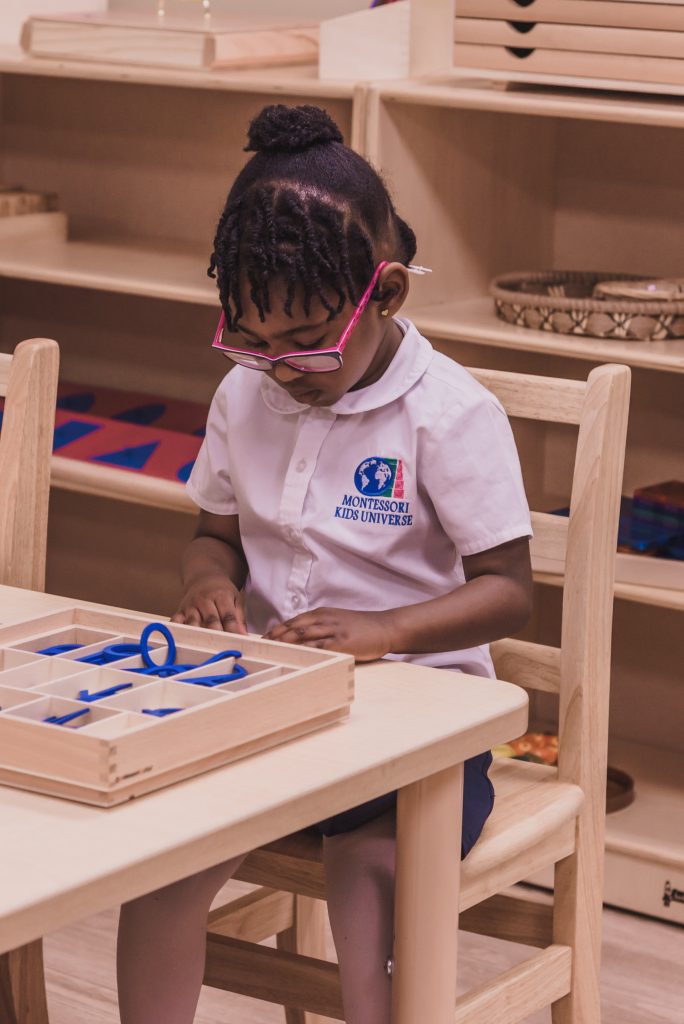Primary/ Children’s House / Casa
Primary classroom environments have been the staple of Montessori education since Maria Montessori opened the first Casa Dei Bambini school, in Italy, in 1907. The school opened for 50 special needs students between the ages of 2 and 6 in an older “warehouse” type setting, complete with concrete floors. Dr. Montessori knew the students needed to be more comfortable on the floor, so she gave them work rugs to protect the materials and create a boundary for the students. We still use work rugs today!
The Montessori method is based on brain science and child development, and this is apparent across all MKU Primary classrooms. Like the younger age classrooms, the Primary environment operates with a focus on building independence, concentration, organization, and coordination. The child is well prepared to enter the Primary classroom due to a focus on sensorial and practical life skills gained in the Pre-Primary classroom.
Each student is assessed with the aid of specific software that assists with tracking the student’s growth and mastery of skills. The student is on their own individualized curriculum path and is presented daily, one-on-one lessons covering the following topics:
- Language
- Mathematics
- Geography
- Geology
- Botany
- Zoology
- Practical Life
What is practical life? Just that – practical, real life applicable skills that a child can master as soon as they can move their hands! Practical Life lessons can include:
- Pouring, tonging, scooping
- Folding, table setting, opening/closing containers
- Sewing, polishing, sweeping, mopping, dusting
- Planting seeds, dusting plants, harvesting gardens, feeding animals
- Zipping, buttoning, tying, clasping
- Brushing teeth, washing hands, dressing self
Equally as important to letters, numbers, and practical life lessons, MKU Primary classrooms include daily, one-on-one or group lessons for:
- Cooking
- Foreign Language Studies
- Music appreciation
- Art history
- Engineering
- Science experiments
Montessori Kids Universe understands the importance of having trained, certified Montessori teachers leading every classroom. Because of this, the role of the lead teacher and the assistant teacher are quite crucial.